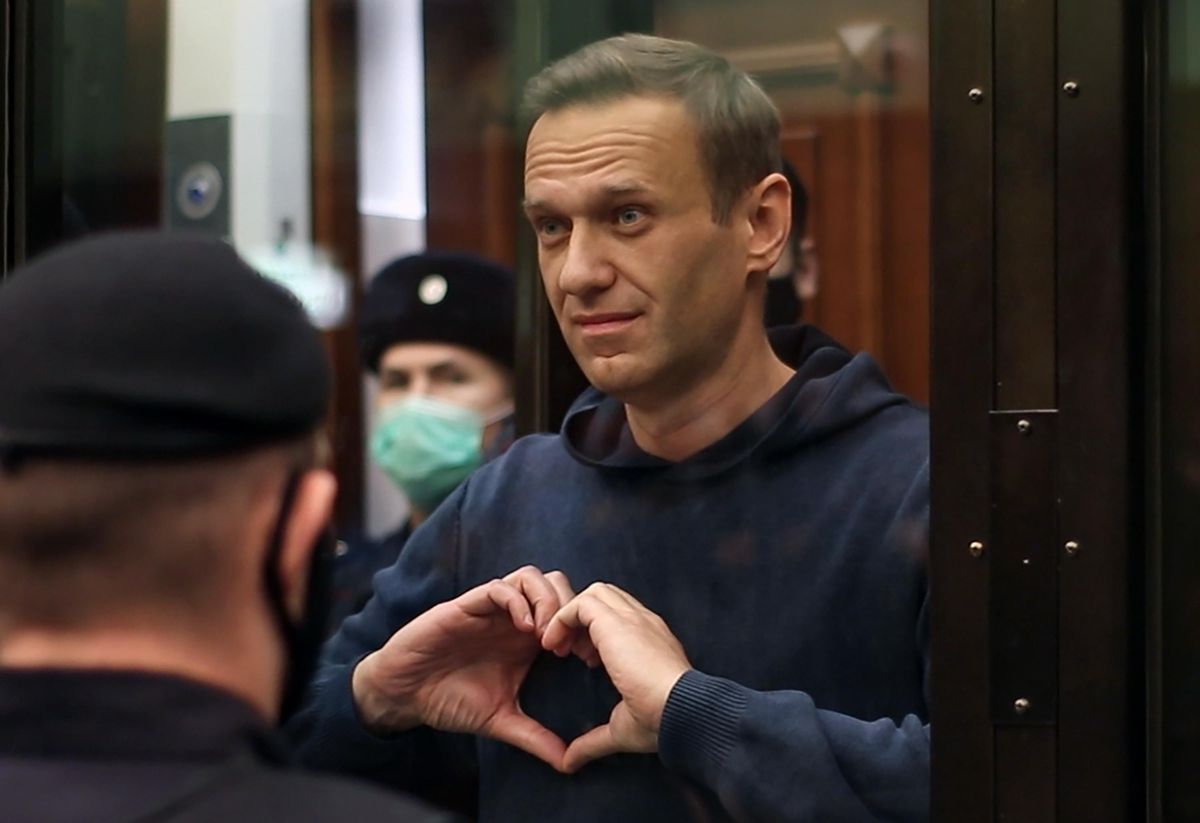The Kremlin is taking zero chances with opposition leader Alexei Navalny. On Tuesday, a Moscow court sentenced him to nearly three years in prison for violating the terms of his parole in connection with an earlier graft conviction.
To refresh, Navalny is Vladimir Putin's most prominent critic. He is an outspoken anti-corruption crusader who was poisoned, allegedly by state officials, in Russia last fall. After recovering in Germany, he returned to Russia where he was promptly arrested. Since then, there have been two weekends of relatively small, but uncommonly widespread, protests across Russia in his support.
The extended jail sentence is a change of tack for the Kremlin, which has previously jailed Navalny only for short stints or suspended sentences. (You might also say that attempting to kill him was a "different approach" too, but we leave it to you to evaluate that allegation here.)
Now Navalny will languish in a remote penal colony for at least several years, meaning he will be out of the picture while Russia holds legislative elections this fall, and also during the the run-up to the next presidential election in 2024.
By taking the gloves fully off with Navalny, Putin is betting on a couple of things:
First, by packing him off to prison, Russia's president believes he can silence Navalny's uniquely charismatic, media-savvy, and fearless voice for good. Will Navalny — or his family and his fellow anti-corruption crusaders — find a way to stay relevant now? The internet, which is where Navalny lives most comfortably, is still relatively free in Russia.
Second, Putin calculates that his own support is strong enough where it matters: among the two-thirds of Russians who still approve of him after two decades in power, among the police who will will keep a lid on the streets, and among his wealthy cronies who still have much more to lose by turning against him than by sticking with him.
Third, by seeking to crush Navalny, he is forcing Russians to accept that any change to the system can come in only one of two ways: on Putin's terms, through a voluntary decision to cede power after 2024, or on the terms of the streets, through a kind of revolutionary upheaval from below that very few Russians would wish to see.
And fourth, Putin is betting that he can brush off whatever measures the "West" unveils in response to Navalny's plight. Strongly worded statements will abound, and specific Russian officials may be sanctioned. But will Western capitals really have the stomach to rankle financial markets by sanctioning, say, Russia's sovereign debt, or mess with energy markets by hitting Russian oil and gas?
Ranged against all of this, Navalny and his supporters are betting that while the Russian president may be correct in the short run, he faces a longer term loss of legitimacy that will eventually turn the tide of opinion — both popular and elite — against him as he nears a quarter of a century in power.
High stakes for both sides, but for the foreseeable future, only one of them will be gambling from prison.


















